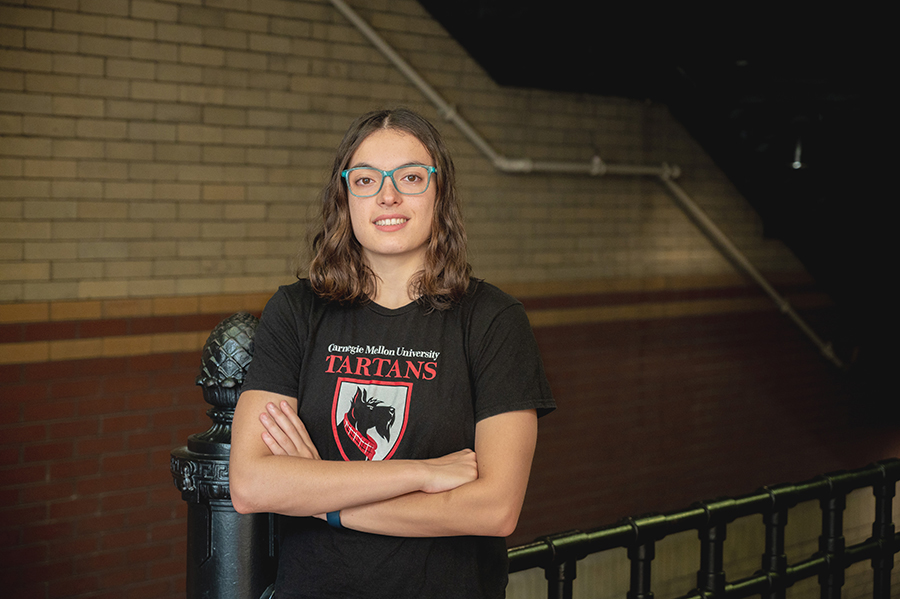Studying Genetics and Sleep in a Dream Research Project
Kirsten HeuringThursday, November 10, 2022Print this page.

Ruby Redlich's interest in genetics and sleeping patterns first awakened when she took an introductory computational biology class with Andreas Pfenning, an assistant professor in Carnegie Mellon University's Computational Biology Department.
"He had talked about some projects his lab was working on, and it seemed really interesting," said Redlich, a biological sciences junior in the Mellon College of Science with a secondary major in computational biology in the School of Computer Science. "I liked the balance in his lab between biology and computer science."
Redlich joined the Pfenning lab last fall. Under the mentorship of Pfenning and Amanda Kowalczyk, a Neuroscience Institute postdoctoral fellow, she started developing her own research into the evolution of different sleeping patterns and how they related to genetic markers.
"What I find really exciting is that we're able to use computational tools to predict ancestral history," Redlich said. "We predict how the current day species may have evolved from their most recent common ancestor, so even though we don't know that, we're able to predict that using these computational tools. Then, we actually factor that information into our analysis."
Redlich's research was funded through a Summer Undergraduate Research Fellowship grant from the Office of Undergraduate Research and Scholar Development, which provides $3,500 to CMU undergraduates conducting full-time summer research.
Pfenning said that the tools Redlich is creating could be of significant use across projects related to links between genomes and behavior.
"What we're interested in the higher level is basically how differences in the genome relate to differences in complex behavior," Pfenning said. "Within the human population, that might be a genetic difference that might lead to Alzheimer's disease or Parkinson's disease or even differences in sleeping behavior. But across species, that means that there's a genetic difference across mammals that might lead to differences in the sleeping behaviors of those mammals."
Read more about Redlich's work on the Mellon College of Science news page.
Aaron Aupperlee | 412-268-9068 | aaupperlee@cmu.edu
